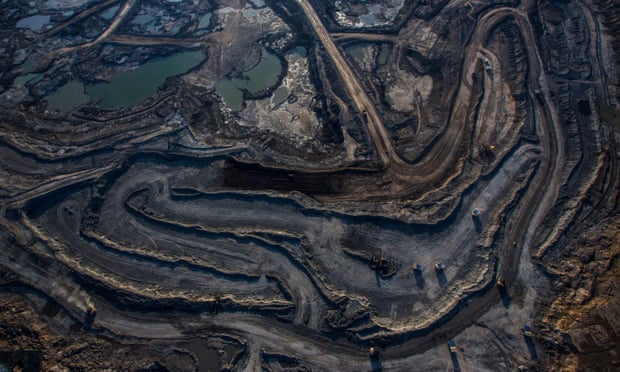As world leaders enter the home stretch of the Paris climate
negotiations they should keep in mind a key measure of success in limiting
carbon emissions: cheap oil. The lower the global price of oil, the more it
stays in the ground – due to the brutal, if counterintuitive, logic of the
petroleum marketplace.
Most of the easily extracted oil deposits are long gone. What
are left are high-cost, high-risk long shots such as the Alberta tar sands,
deep-water reservoirs off Brazil, and drilling the high Arctic. Companies
hoping to profit from the last dregs of the petroleum age need to convince
their investors to part with massive amounts of capital in hopes of competitive
returns often decades down the road.
Billions have already fled the Alberta oil sands in the last
year as the global price of oil collapsed from over $100 per barrel to below
$40. Shell has just called a halt to its Carmon Creek project in Northern
Alberta, writing off $2bn in booked assets and 418 million barrels of bitumen
reserves. A barrel of bitumen will release about 480kg of carbon dioxide from
extraction, refining, transport and combustion. This head office write-down
means that 200m tonnes of carbon will not be released into the atmosphere.
Two other tar sands projects were also shelved this year
with reserves of about 3bn barrels. If these investments stay dead the world
will avoid another 1.6tn tonnes of dangerous carbon emissions. Together the
cancellation of these three projects alone amount to the equivalent of taking
more than 14m cars off the road for the next 25 years.
There a simple correlation between future emissions and the
price of oil needed to make that profitable. Such a graph has been compiled by
Carbon Tracker, a UK-based non-profit organisation set up to educate
institutional investors on the increasing financial risks of the fossil fuel
sector.
Its message to investors is simple: the world must limit
additional emissions to below 900 gigatons to avoid potentially catastrophic
climate consequences – and 40% of this future carbon budget – about 360
gigatons – is projected to come from the oil sector. Anything more than that
must stay in the ground – the so-called unburnable carbon.
And what’s the price of oil that could save to world?
Anything below $75 a barrel of Brent crude means that companies cannot
profitably extract more than 360 gigatons of the world’s remaining reserves –
no messy policy solutions required.
Just last year the price of Brent crude was about $110 a
barrel, a price that would gainfully produce about 500 gigatons of carbon
emissions by 2050. Now it is less than $50, which would only produce 180
gigatons over the same period. If prices stay where they are, the world will
avoid some 320bn tonnes of carbon emissions by 2050 in precluded production
from uneconomic oil fields.
For Details: The Guardian

Comments
Post a Comment